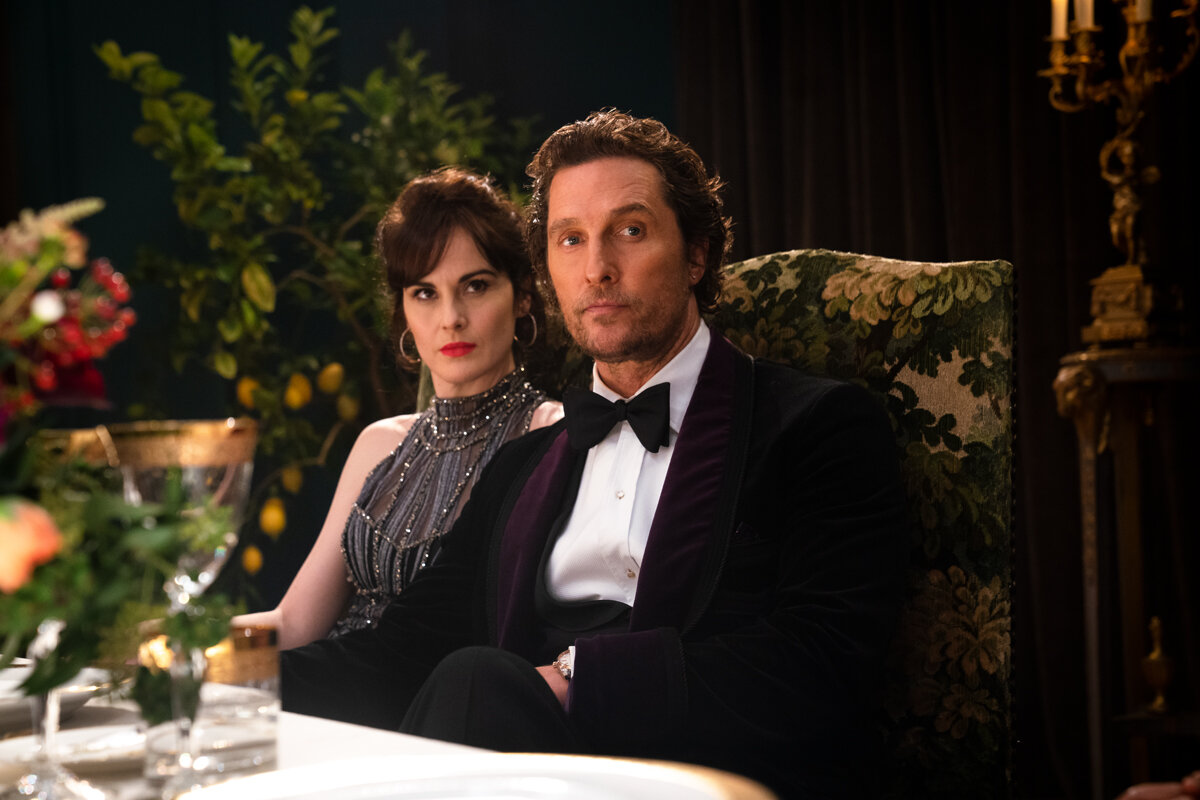Wright or Wrong: AMC Needs to Do Better

As society continues to play chicken with a global pandemic, the developing future that Hollywood seems to be moving towards has seen an odd hiccup in the form of AMC Theaters recent claim that Universal films will no longer be welcome to their auditoriums.
The announcement came on the heels of the studio's reported surprise success with an experimental VOD release for "Trolls: World Tour," leading Universal to announce that they'll be looking to experiment with VOD releases in the future. How successful a VOD release, however premium it may have been, was for a movie that cost well over a $100 million with all marketing and production costs totaled, remains to be seen but the reality remains that when faced with the devastation of COVID-19's economic cost, Universal did what few major corporations of its size would think to do and rolled the dice on innovation.
Does this mean that I won't need to leave my house to watch the next "Fast and Furious" movie? Of course not, but it does mean having a discussion about what really benefits from being seen in theaters in favor of reaching larger audiences around the globe through means that are more accessible across society. Sadly, AMC Theatres would prefer to see this sort of innovation as an attack on their wallets rather than follow Universal's example by actually creating reasons to flock to the theater more.
The stupidity of locking out releases from a major Hollywood studio that puts out anywhere from 10-20% of major domestic releases is almost self explanatory, but the idiocy of this decision coming on the heels of the recent announcement that said company must potentially navigate bankruptcy in order to stay afloat once its safe to reopen the doors suggests a degree of lunacy that I can't put into words, nor will I bother. Instead, I'll illustrate that point by simply listing off some of the releases that the nigh-bankrupt AMC Theatres thinks that they can afford to miss full theatrical runs on.
Jurassic World — $2.97 billion
Bond — Last two films, $1.98 billion
Fast and Furious — Last three movies plus first spin off $4.3 billion
Halloween — $256 mil on a budget under $20 million
Invisible Man — $126 million on a budget under 10 mill. Halted only due to Pandemic protocols
Rather than shine a light on this stupidity that's destined to fail by breaking down numbers that speak for themselves, let me instead point it out by issuing some much needed tough love to AMC.
As I've spent the last decade branching out to different theaters to tackle more and more releases each year, I've become particularly well acquainted with AMC Theaters all throughout my metroplex. From upper-scale Prime screenings with recliners and seat speakers, to sizable dine-ins, right down to basic screenings, I've become increasingly familiar with the quirks of AMC theaters almost weekly for about two years now.
In fact, I hold several "fond" memories of this beloved moviegoing institution — often made on the regular by their insistence of how film should be experienced — from sitting next to baby carriages in IMAX late night "Star Wars" screenings, to missing the first five minutes of a movie because employees couldn't be bothered to let me know my showtime had been cancelled, bumping me to a show in progress to grab whatever crappy seat was leftover. I've bought tickets days in advance that were inexplicably invalidated by their digital booking system on the night of showtime, bumping me to a showing hours later. I’ve spent minutes trying to get popcorn buttered because apparently, despite having multiple dispensers, only one is allowed to be working at any given time. All of that and so much more just comes from before the actual purpose of a movie theater comes into play. I've been to screenings with bulbs so dim that I had to catch repeat viewings on the way out just to make sure the cinematographers weren't intentionally obscuring the audience's visual comprehension. I've never been to an IMAX screening at an AMC theater that actually started on time, even if you factor in the half hour preceding showtime of trailers and commercials attached to these films, and god help me if I choose to watch anything labelled "Fathom Events" because those starting at all, can be a 50/50 chance.
If this is the theater experience AMC Theatres is so hungry to tout, their leadership may need to have their heads checked because if I had the audacity to tell multimillion dollar movie studios that are part of multibillion dollar telecom conglomerates to comply with the demands of an industry selling less product over the course of the last decade in the golden age of digital distribution without so much as consulting their dwindling audience base, I'd not only be ready to resign but become a shut in to avoid having my face be seen by the public again.
Any sane individual would be driven away from patronizing such an institution long ago and setting the inner cinephile aside. Despite watching this company drop the ball time and time again, from service to technical presentation, they've almost been my exclusive theater of choice for business purposes for nearly two years. The reason for this is what I want to be the take-away from this absurdity above all else: AMC A-list is possibly one of the best things to happen to the North American moviegoing experience ever.
The notion of having a major expense covered at the start of the month to clear headspace is what drove me into the arms of riding MoviePass out through the first sputter of its death to come, but the launch of a more realistically priced service with functional limitations that rewards my patronage and encourages spending on the theater services right as MoviePass began its descent towards their own undoing is a godsend. The interface of the app is buttery smooth and intuitive as hell, making advance ticket purchases easier than ever and with the cost of tickets covered more often than not, I've been fortunate enough to eat more movie popcorn in the last two years than I have in almost a lifetime of moviegoing after cutting the practice almost entirely from my life for nearly a decade.
I'm not going to pretend that the service isn't without its hiccups, nor am I suggesting that dishing out free tickets is the only way to entice new customers, but the solution to decreasing ticket sales compounded by convenient yet ill-conceived subscription service pioneers such as MoviePass attempting to strongarm partnerships with theater chains to secure their future brought about genuine innovation that made both business and consumer happy. It's an innovation that has neared a million subscribers in less than two years of operations, and operated in two years that have seen a rise in tickets sold from 2017, despite ticket prices rising over time.
I've called AMC stupid in several ways for thinking the answer to technology disrupting their sales model during a pandemic is to condemn experimentation that brings movies to people without risking their health or wellbeing. The real tragedy of this decision however is that it rides off of a success that massively proves that they can innovate in ways that benefit the customer, while pushing a decision that's only destined to have the opposite effect.
AMC Theatres has proven that they can think outside of the box to serve the best interest of themselves and the moviegoing public, but when people's lives are actually on the line, they can't be bothered to entertain the notion that maybe people shouldn't have to choose between their health and the entertainment they've been deprived of if there's a better way. AMC Theatres can do better. So why aren't they?
Graduating from Texas A&M University—Commerce with a bachelor's degree in News and Editorial Journalism, Jordan Wright has lived most of his adult life professionally critiquing films, from major blockbusters to indie dramas, and has no intentions of stopping.





